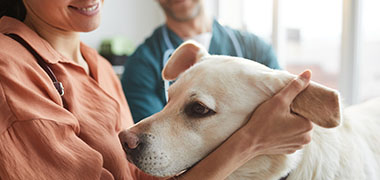
This role has a moderate level of AI exposure. AI can enhance efficiency for some tasks, but this job still relies on human skills and decision-making.
Explore all careersA Wildlife Rehabilitator cares for injured or orphaned wildlife, providing medical treatment and rehabilitation to prepare them for release into their habitats.
Get qualified to work as a Wildlife Rehabilitator with a course recognised across Australia. Speak to a training provider to learn more.




Browse occupations related to Wildlife Rehabilitator



If you're looking to embark on a fulfilling career in wildlife rehabilitation, the Wildlife Rehabilitator courses in Dubbo are an excellent starting point. Whether you're a passionate animal lover or someone keen to contribute to wildlife conservation, this course provides you with the skills and knowledge necessary to care for injured or orphaned wildlife. With only one primary course available in the area, the Certificate III in Wildlife and Exhibited Animal Care (ACM30321), offered by the highly regarded Taronga Training Institute, you can gain hands-on experience that will set you apart in this field.
The Certificate III in Wildlife and Exhibited Animal Care is designed as a beginner course, making it suitable for individuals with no prior experience. The course covers essential topics such as animal care, behaviour, and husbandry practices. If you're located in Dubbo, a thriving regional hub known for its rich biodiversity, this certificate will not only enhance your understanding of local wildlife but also prepare you for various job roles in the sector.
Completing a Wildlife Rehabilitator course can lead you to numerous exciting career paths. In addition to becoming a Wildlife Rehabilitator, consider exploring related roles such as Pet Groomer, Animal Attendant, or Wildlife Carer. Each role plays a vital part in the welfare of animals and contributes to the conservation of species within the Dubbo region and beyond.
In Dubbo, wildlife is not only a significant part of the local ecosystem but also an integral aspect of community life. With relevant training providers such as the Taronga Training Institute nearby, aspiring Wildlife Rehabilitators can benefit from an educational framework that prioritises hands-on learning and practical experience. This course not only prepares you for direct involvement with wildlife but also paves the way for other roles such as Zoo Keeper, Animal Technician, and Ecologist—all of which are highly regarded professions in understanding and protecting our natural world.